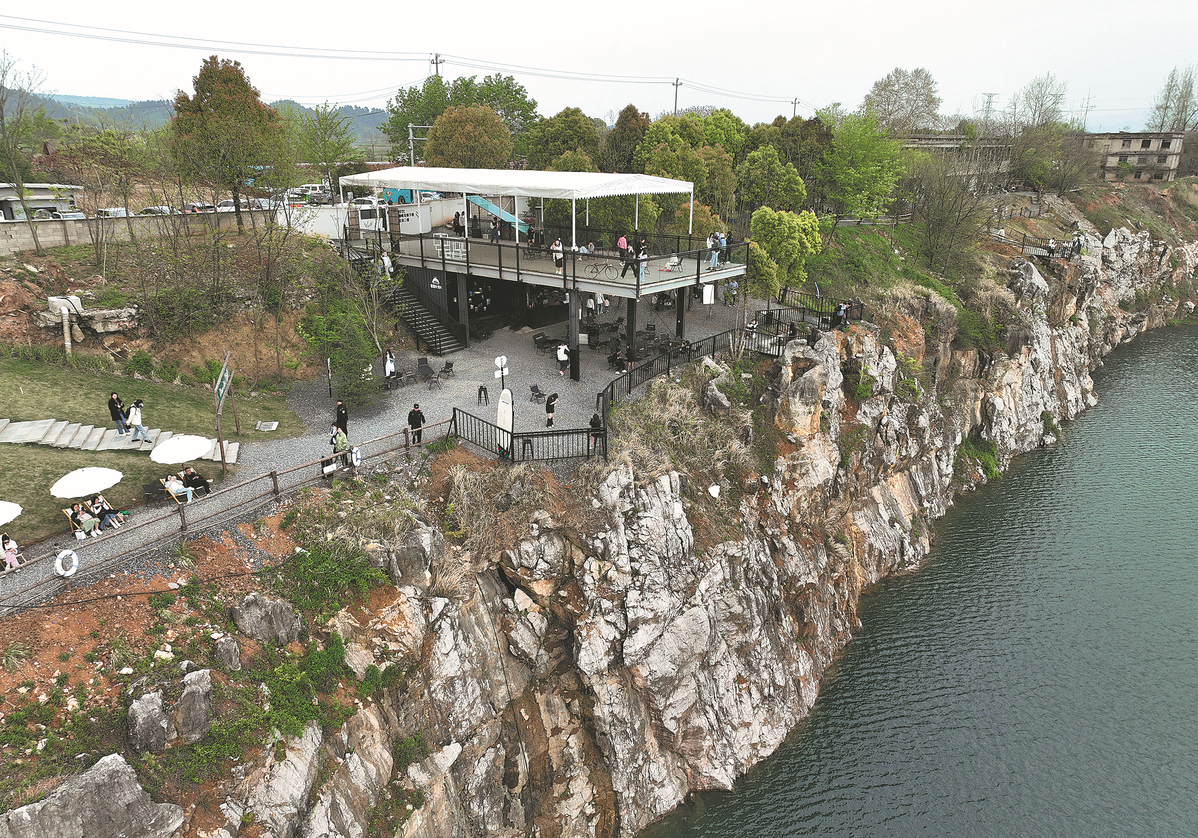Coffee shops perk up sleepy rural places


New business models are drawing visitors and providing jobs. Yan Dongjie reports from Anji county, Zhejiang.
On Oct 2, the fourth day of the Mid-Autumn Festival and the National Day holiday, a rural coffee shop in the eastern province of Zhejiang sold more than 7,100 cups of the beverage. The equivalent of one cup of coffee was sold every four seconds over the eight hours of opening time, which the outlet claimed is a domestic sales record. It broke its own record of selling more than 5,100 cups during the Labor Day holiday in May.
The Dark Blue X Cafe in Hongmiao village, Meixi town, Anji county, was built on the grounds of an abandoned mine that had been idle for more than 10 years. The scenery attracts tourists from nearby cities such as Shanghai, Hangzhou, Zhejiang's capital, and Huzhou, also in Zhejiang.
Hailed by netizens as an "Iceland-like site in Anji", the heart-shaped mine shaft is 108 meters deep and filled with rainwater, which reflects the deep blue sky.
"Young people nowadays enjoy coffee, but coffee shops don't just sell coffee anymore: scenery and design have become more important," said Gu Pingling, the cafe's designer.
All the coffee, be it a latte or an Americano, is priced at 68 yuan ($9.30) a cup. "The price is a 'ticket' to enjoy the rural scenery while sitting down, relaxing and taking a few snaps. Coffee is the ticket, the scenery is the product," Gu said.
There are more than 300 coffee shops in Anji, a mountainous county with a population of about 580,000 in the north of the province, surpassing Shanghai in terms of per capita cafes. The county was acclaimed by Lonely Planet magazine as "China's City of Coffee in 2022."
Local authorities spent a long time planning the transformation of the mine into a new business opportunity. For example, Shen Yongtian, secretary of the local Party branch, made a fact-finding visit to Shanghai's Zhujiajiao Water Town, where the camping industry was growing rapidly.


















